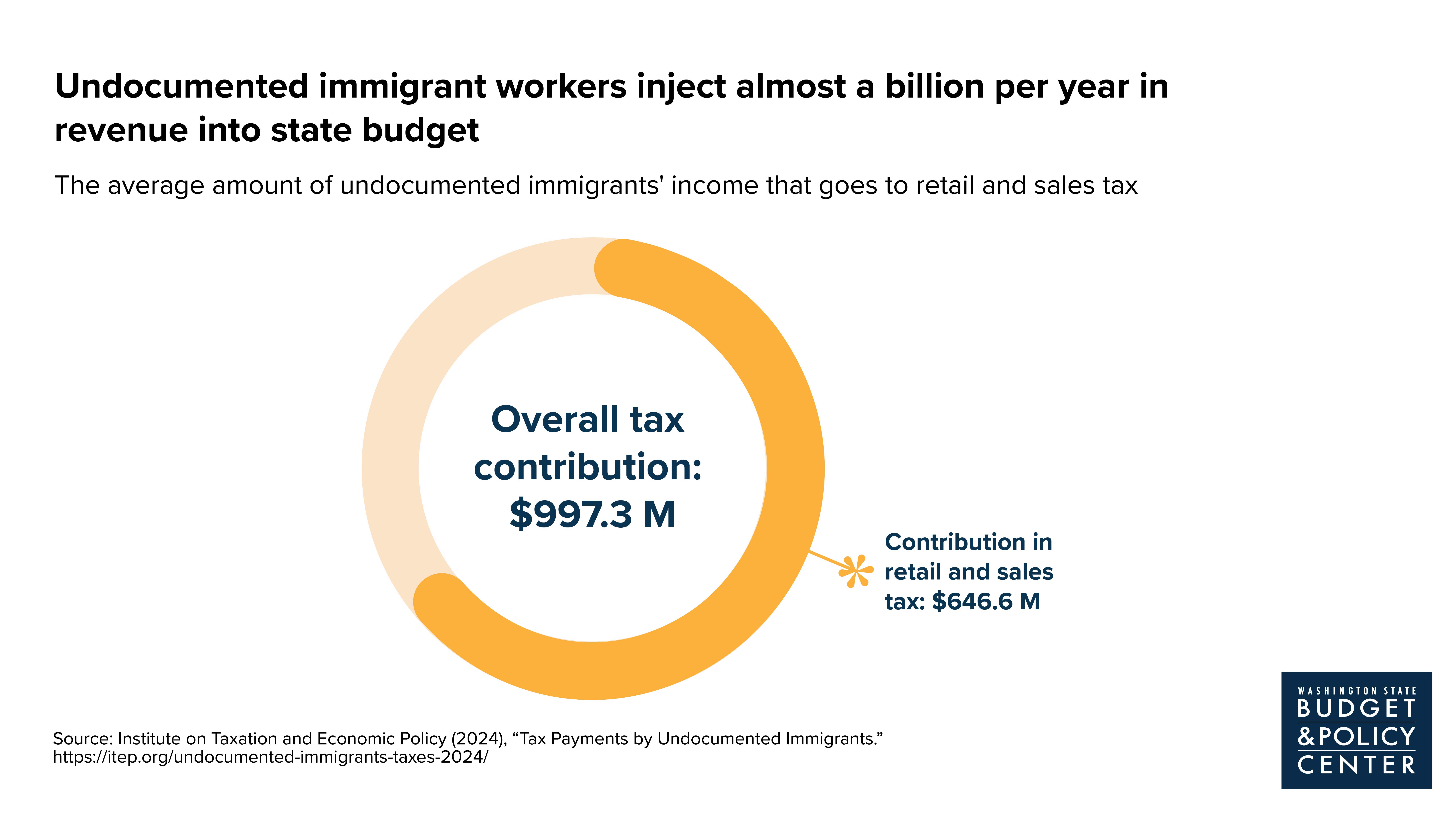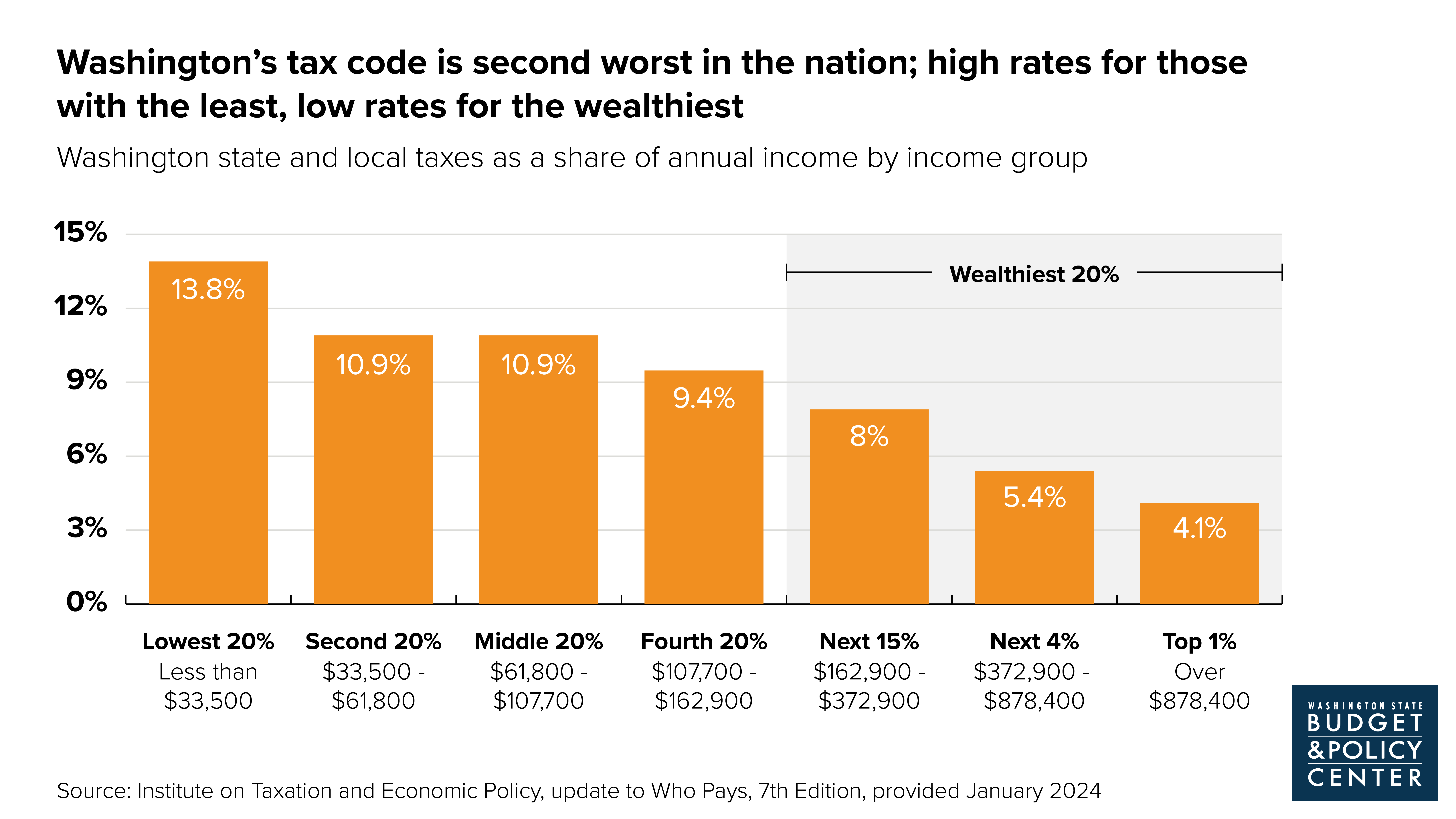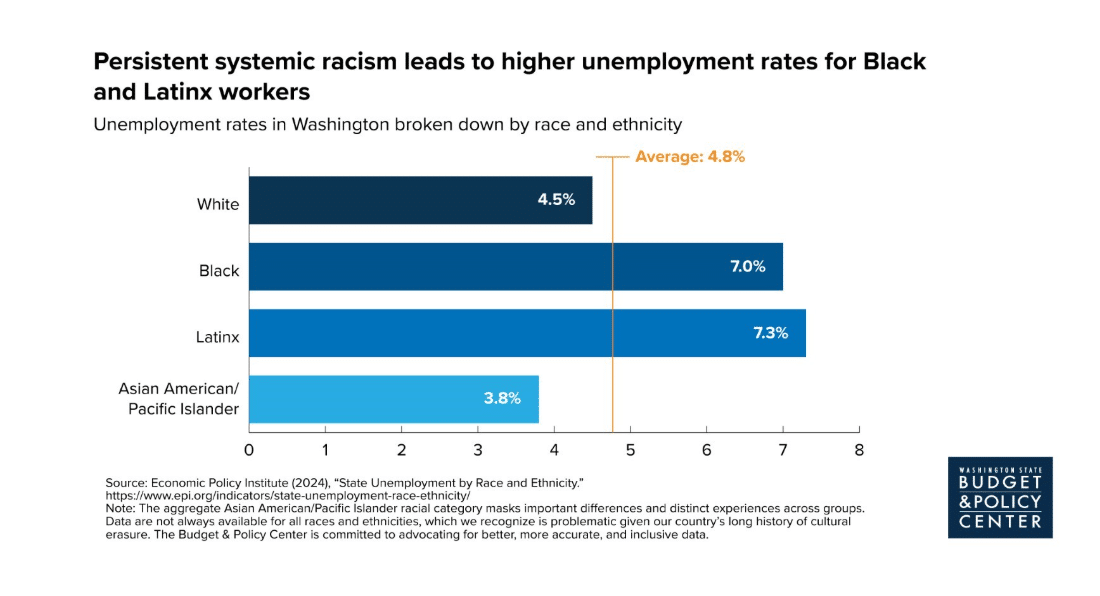In Washington state, we believe all workers deserve a safety net if they lose their jobs. Access to public benefits like unemployment insurance (UI) keeps workers and families safe when they face a crisis like job loss through no fault of their own.
However, thousands of our people in Washington are unfairly excluded from vital public benefits and left without a safety net. Despite the millions in tax contributions that undocumented immigrants pay the state, they are unable to access UI and other vital public benefits when they face hard times.
Immigrants are invaluable to Washington’s vibrant communities, robust workforce, and healthy economy. Not only are they essential to our workforce, but they are also major tax contributors who help uphold our public programs. It is time that our systems reflect the true value of our immigrant workers.
Immigrant workers are vital to Washington
We all benefit when immigrants are part of our community and workforce. Immigrants work in roles across society and income levels to ensure our day–to–day lives run smoothly. Washington is home to 1.2 million immigrants who are our family members, our neighbors, our child’s physicians, and our favorite grocers. Immigrants are 34 percent of the personal care workforce and 29 percent of Main Street business owners in Washington. On a larger scale, immigrants are valuable economic drivers who generate jobs and ensure we have a strong economy by providing $145 billion of Washington’s annual gross domestic output. Washington’s social fabric and economy is vibrant because of immigrant workers.
Undocumented immigrants generate millions in revenue for our state budget
Not only do immigrants play important roles in our society, but undocumented immigrants also pour millions of dollars into our state through taxes. Institute for Taxation and Economic Policy analysis reveals that undocumented immigrants provided $997.3 million in state and local tax contributions to Washington in 2022. This is almost a billion dollars in revenue that funds essential services like child care premium assistance, early learning facilities, energy-efficiency fixes for low-income homes, and support for newly arrived migrants. However, because of exclusive and restrictive policies that bar people from accessing benefits based on their immigration status, undocumented immigrants receive few of the public benefits that they pay into.

What’s more, immigrants are more likely than the general population to work in low-wage jobs— like agricultural and service work. As such, they are disproportionately impacted by our upside-down state tax code that over-relies on people with low incomes. Of the $997.3 million undocumented immigrants pay in taxes, $646.6 million goes to regressive retail and sales taxes. They often pay a tax rate that is three times higher than what ultra-wealthy people pay in Washington. In short, a disproportionately large amount of their income goes toward taxes.

Contributions for undocumented workers to the Unemployment Insurance Trust Fund
In addition to the tax contributions of undocumented immigrants, Washington employers pay payroll taxes on their behalf to the state Unemployment Insurance Trust Fund (UITF) account. Between 2010 and 2019, Washington employers paid almost $400 million into this account on behalf of the undocumented workers they employed. However, these workers cannot access any of the benefits that have been paid into the trust fund for them. The Unemployment Insurance Trust Fund account is a combination of state and federal funds, and federal law limits providing funding to undocumented individuals. As a result, undocumented workers are unfairly blocked from accessing monies that have been paid in for them from this account.
This past year, immigrant rights advocates, labor unions, members of the business community, and the Washington State Employment Security Department identified how to shift processes so that undocumented workers can fairly obtain benefits through a third-party-administered wage replacement program. This program would allow undocumented workers to safely access benefits in case of job loss, similar to unemployment insurance.
Funding the wage replacement program for excluded workers
The Washington State Employment Security Department’s (ESD) legislative report, “Funding a wage replacement program for undocumented workers,” demonstrates that there is already sufficient funding in the UITF to ensure undocumented workers can live with dignity. Immigrant rights advocates have worked with ESD to model a safe process to dispense benefits to undocumented immigrants who have been laid off due to no fault of their own by learning from Colorado’s Benefit Recovery Fund, the first government-run UI program for undocumented workers in the country, which has been hugely successful. ESD outlines a method of diverting employer-payroll tax contributions that are paid on behalf of undocumented employees into a separate account and developing a process for workers to access these benefits.
Further, ESD’s report reveals that the baseline costs of funding the program would only minimally reduce the solvency of the trust fund by less than a month (from 9.5 months to 8.95 months) over the course of four years. By leveraging tax contributions that employers already pay on behalf of their undocumented workers, this diversion is a simple and safe equity fix to the program that ensures workers can access benefits that have already been funded for them by their employer, without risk to either worker or employer.
We all need access to a safety net when facing the crisis of job loss
UI provides people the resources to live with dignity during unexpected tough times. When someone is laid off due to no fault of their own, access to UI benefits is a vital safety net that allows individuals to put food on the table, pay bills, and decrease anxiety during a stressful time.
UI is also critical for communities of color, who unfairly experience higher rates of unemployment than their white counterparts. In 2024, Black workers were laid off at a disproportionately higher rate in Washington compared to white workers in Washington. Both Black and Latinx workers experience almost double the unemployment rate of white workers in Washington.

UI has also unequally provided benefits to a greater percentage of white workers than workers of color, particularly women of color. This is on top of the fact that, as a result of racism and gender discrimination, Black, female immigrants make lower wages compared to others in the workforce as a result of racism and gender discrimination. Undocumented workers are additionally overrepresented in front-line essential jobs that provide lower wages, including working in agriculture and hospitality. Making sure workers can access benefits when they lose their job regardless of their citizenship status, is an opportunity to advance racial equity.
During the COVID-19 pandemic, we also saw the great importance of UI: It prevented 4.7 million people in the U.S. from falling into poverty and stabilized the economy by putting money back into families’ hands to spend. State-level relief funds for immigrants, who couldn’t access UI due to federal restrictions, helped our communities make it through. Gov. Jay Inslee allocated $40 million of federal CARES Act funding to create the Washington COVID-19 Immigrant Relief Fund to provide meaningful cash grants to 121,850 workers who were eligible between October 2020 and May 20211. It is past time for all workers, regardless of immigration status, to be able to get permanent access to the benefits they already pay into.
We all benefit when immigrants are part of our community and workforce. Immigrants work in roles across society and income levels to ensure our day–to–day lives run smoothly.
When immigrant workers have the resources to support themselves and meet their basic needs, there’s more money in people’s hands and more money spent investing back into our local economies. Unemployment insurance for excluded immigrant workers is vital to fostering the human dignity of Washingtonians and to the well-being of our economy.
This upcoming legislative session, lawmakers have an opportunity to fix this structural inequity by funding a wage replacement program that would provide immigrant workers with benefits when they are laid off due to no fault of their own. This wage replacement program will make sure our economy works better, and our communities are more economically secure.
